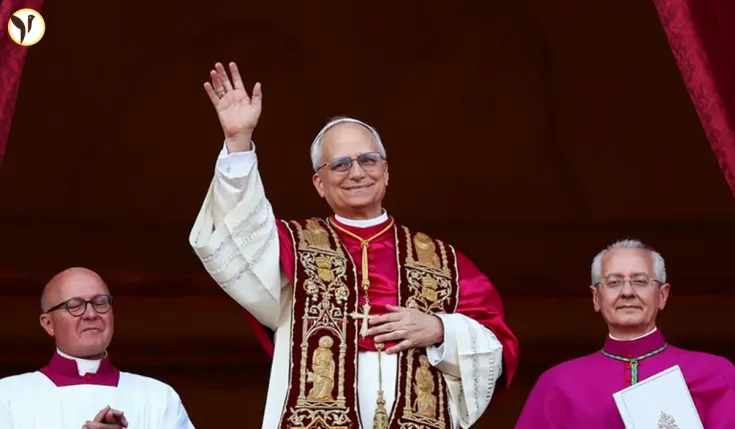The Rise of Pope Leo XIV: A Chicagoan's Journey to the Papacy
The world watched in awe as Cardinal Robert Prevost, a Chicago native, was elected the 267th Pope, taking the name Leo XIV. This historic event marks the first time an American has ascended to the papacy in the Church's two-thousand-year history. His journey from the South Side of Chicago to the Vatican is one of humble beginnings, unwavering faith, and a lifelong commitment to serving the poor.
From Altar Boy to Pontiff: The Life of Pope Leo XIV
Born in Chicago on September 14, 1955, Robert Prevost's childhood was rooted in the traditions of St. Mary of the Assumption Church. Like many, his early involvement in the church began as an altar boy, a foundation that laid the path for his future. His family, of Spanish, French, and Italian descent, instilled in him a strong Catholic faith and a fluency in multiple languages – skills that would prove invaluable in his later missionary work.
- Humble Beginnings: Raised in a devout Catholic family in Chicago's Dolton neighborhood, his father was a Navy veteran and school superintendent, and his mother a librarian.
- Education and Calling: He earned a mathematics degree from Villanova University, a Catholic institution, before joining the Order of St. Augustine in 1977 and later being ordained.
Prevost’s path took a significant turn in 1985 when he moved to Peru, dedicating two decades to missionary work. He served in several missions, connecting with the marginalized and impoverished communities of Trujillo and Chiclayo. His linguistic skills and compassionate heart allowed him to build bridges and spread the faith among those most in need. This deep immersion in the realities of poverty profoundly shaped his worldview and future pastoral leadership.
- Peruvian Ministry: His years ministering to the poor in Peru were pivotal, leading to his appointment as Bishop of Chiclayo and later, Peruvian citizenship.
- Friendship with Pope Francis: Pope Francis, recognizing Prevost's dedication and progressive views, appointed him Cardinal in 2023 and later entrusted him with leading the Dicastery for Bishops, a powerful position within the Vatican.
Prevost's close collaboration with Pope Francis saw him play a key role in implementing progressive reforms within the Church. He championed Francis's vision of a more inclusive and modern Catholic Church, advocating for women's greater participation and actively addressing pressing issues such as climate change. This progressive stance, while not without its critics, significantly contributed to his image as a modern and compassionate leader.
- Progressive Views: He has been outspoken on social justice issues, criticizing President Trump's immigration policies and emphasizing the importance of inclusivity.
- Challenges and Controversies: Like many prominent figures in the Church, Prevost has faced past criticism, but his recent focus has been on bringing Catholicism into the modern era.
Prevost's election as Pope Leo XIV is not only a landmark moment for the Catholic Church but also a testament to his life dedicated to service, justice, and modernization of faith. His choice of the name Leo, historically associated with strong and courageous leaders during times of crisis, suggests his intention to lead with strength and compassion during a pivotal moment for the Catholic Church.
A New Era for the Catholic Church?
Pope Leo XIV's election signifies a significant shift for the Catholic Church. He is the first American Pope, breaking a centuries-long tradition. His background as a missionary in Peru, coupled with his progressive views, suggest a continuation and possibly expansion of Pope Francis's reforms. While his reserved nature may contrast with the more outwardly expressive Francis, his dedication to social justice and modernization of the Church promises a new era of leadership. The future will tell how Pope Leo XIV will shape the global Catholic community and address the evolving challenges facing the Church.






